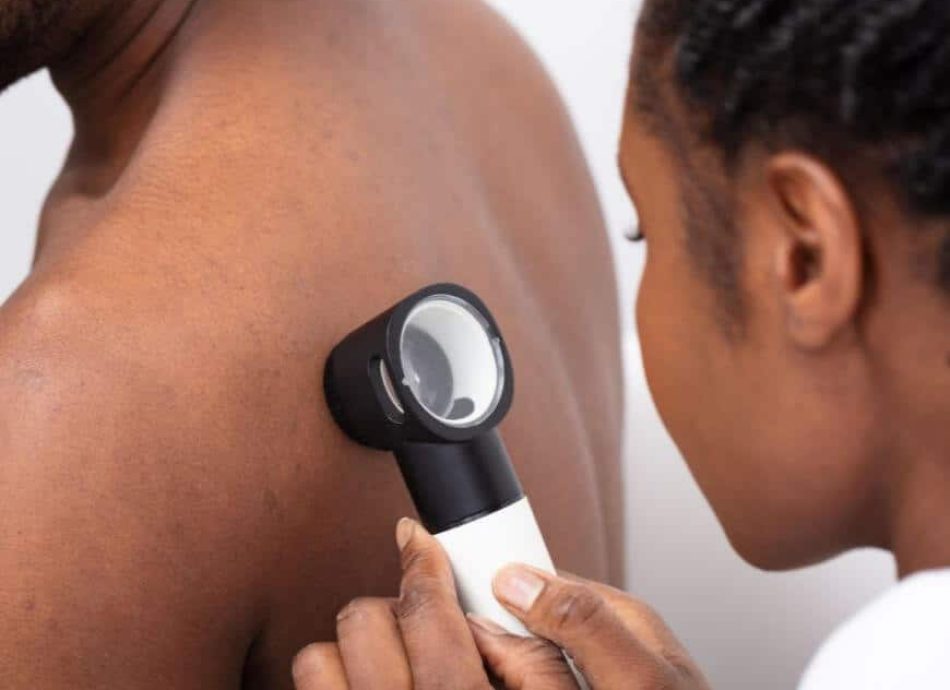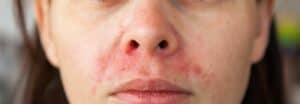Award winning dermatology service, with over 20 years of experience
Short waiting lists, on some occasions offering same week appointments
Safe environment, in Care Quality Commission approved facilities
Conditions
LASER TATTOO REMOVAL SHREWSBURY, SHROPSHIRE
At St Michael’s Clinic in Shrewsbury, Shropshire, our qualified team of clinicians are specialists in laser tattoo removal. The procedure is performed using the state-of-the-art Q-switched laser to break down the tattoo pigment in your skin – this achieves permanent removal, with minimal scarring. Our experienced staff will advise you on the possibility of simply lightening your tattoo and can offer all other services needed in order to achieve optimal results including aftercare advice. Contact us today and see what we can do for you!
TYPES OF TATTOOS
Professional tattoos – ‘Professional’ tattoos are the most common ones and the hardest to remove, these tattoos are the ones people often get from a tattooist and the difficult presents itself when there are multiple colours within the tattoo.
Medical tattoos – Medical tattoos are when tattoos are deliberately made for medical reasons such as before cancer radiotherapy.
Cosmetic tattoos – Some women prefer to have permanent makeup to define their eye or lip lines. Some balding men would prefer having black ink tattooed into the scalp to hide the baldness. These cosmetic tattoos are quite commonly performed by tattoo and beauty therapists.
Traumatic tattoos – Traumatic tattoos are undesirable tattoos caused by different foreign bodies such as fireworks’ particles, sand, metals, glass, gunpowder, asphalt, dust, or petroleum products embedded forcefully in the dermis, they can be a result of incidents such as road accidents or explosions.
FREQUENTLY ASKED QUESTIONS
WHAT ARE THE RISKS OF LASER TATTOO REMOVAL?
Laser tattoo removal is a generally safe procedure, however some possible risks include:
- the tattoo not completely fading as some ink colours, such as yellow, green and purple, require more sessions to treat
- your skin may temporarily become darker or paler
- there is a slight chance of scarring
HOW LONG DOES TATTOO REMOVAL TAKE?
It can take multiple sessions to remove your tattoo, averaging between 6-8 treatments which are spaced out in 6-8 week intervals.
REQUEST A CALL BACK
Please fill in this form and one of our team will give you a call back to arrange a consultation with one of our expert dermatologists.

HEAR FROM OUR PATIENTS
WHY HAVE LASER TATTOO REMOVAL AT ST. MICHAEL'S CLINIC?
INSIGHTS AND ADVICE

Your Guide to Autumn Skincare
With the weather gradually cooling and leaves taking on their autumnal palette, it’s also a gentle reminder that winter is on its way. Maintaining a vibrant and healthy skin during the transition from summer to cooler days can be challenging. Fear not – this comprehensive

The Definitive Guide to Eczema
Eczema Awareness Month in October is a global initiative spotlighting those who suffer from this demanding skin ailment. Our perpetual aim is to arm you with a well-rounded understanding of eczema‘s core causes, differing treatments and beneficial coping mechanisms. This all-inclusive guide offers penetrating insights

Exploring Varicose Veins: Recognising, Managing and Preventing
Varicose Disease Awareness Month is focused on raising awareness about varicose veins, a common but frequently overlooked condition affecting millions globally. Throughout September, our goal is to emphasise the importance of early detection, explore the causes, treatment options and highlight lifestyle changes that can help




